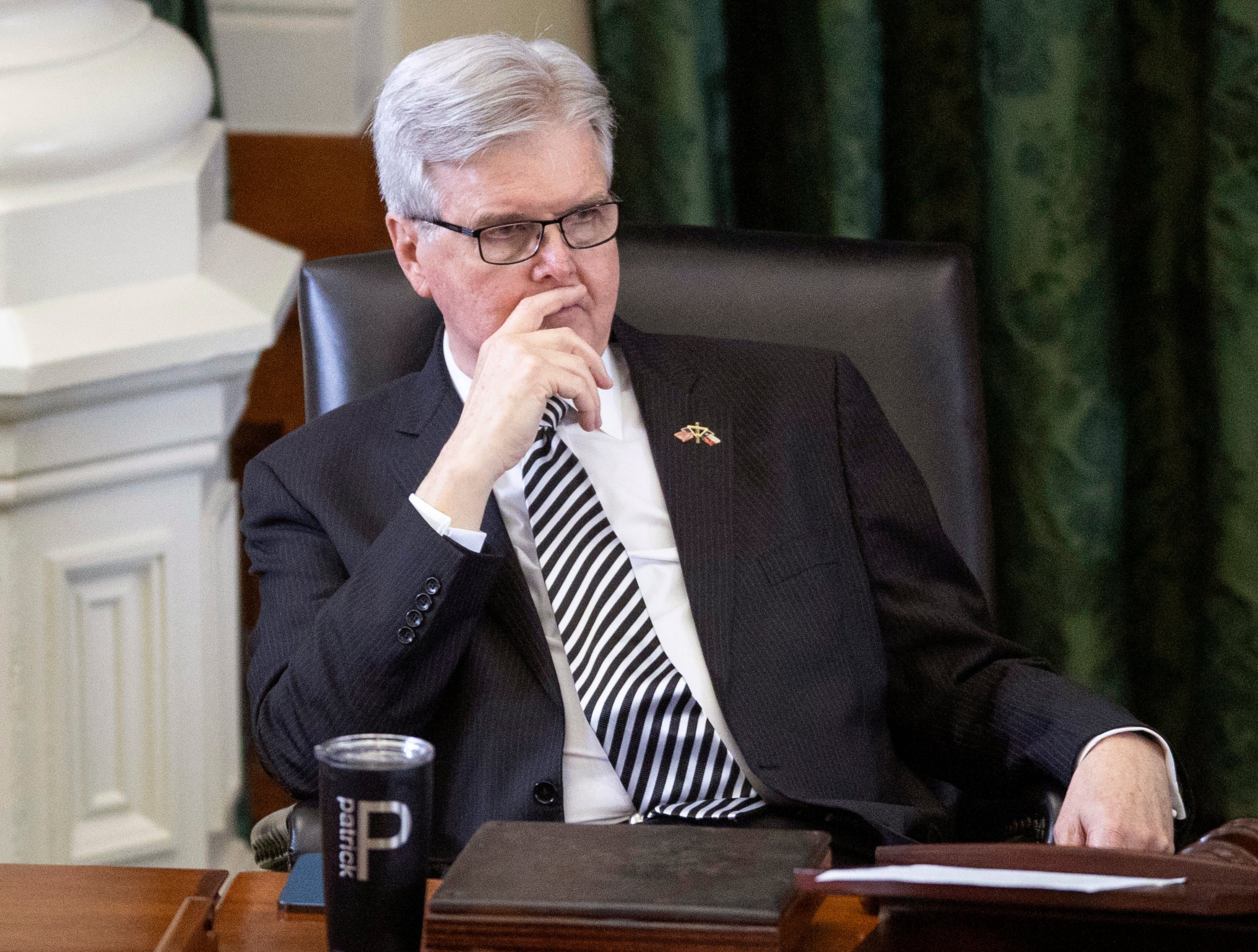Texas GOP backs off changes to Sunday voting before next try
Texas’ lieutenant governor says Republicans won't revive changes to Sunday voting or wording that would have made it easier for judges to overturn elections

Your support helps us to tell the story
From reproductive rights to climate change to Big Tech, The Independent is on the ground when the story is developing. Whether it's investigating the financials of Elon Musk's pro-Trump PAC or producing our latest documentary, 'The A Word', which shines a light on the American women fighting for reproductive rights, we know how important it is to parse out the facts from the messaging.
At such a critical moment in US history, we need reporters on the ground. Your donation allows us to keep sending journalists to speak to both sides of the story.
The Independent is trusted by Americans across the entire political spectrum. And unlike many other quality news outlets, we choose not to lock Americans out of our reporting and analysis with paywalls. We believe quality journalism should be available to everyone, paid for by those who can afford it.
Your support makes all the difference.Texas Republicans are backing off two contentious voting measures ahead of a second attempt to pass new election laws, after Democrats temporarily thwarted a restrictive bill in May by staging a dramatic walkout from the state Capitol.
Lt. Gov. Dan Patrick said Tuesday that a special session starting this week will not change polling hours on Sunday — when many Black churchgoers cast their ballot — or wording that would have made it easier for judges to overturn an election.
“Neither will be in Special Election bill,” Patrick tweeted.
It came on top of weeks of Republicans distancing themselves from both provisions, adding up to a tacit acknowledgment of GOP missteps both political and legislative in their final rush to pass new voting laws in Texas. Democrats have pointed to the efforts as evidence of trying to make it harder for their side to win and not, as Republicans argue, election safeguards.
“It’s illustrative of how far they tried to overreach, and now they’re embarrassed by what they tried to do,” said state Rep. Chris Turner, chairman of the House Democratic caucus.
Texas Republicans have yet to unveil their second attempt at voting legislation, making it unclear what provisions they still plan to pursue this summer. They had also sought to ban 24-hour polling locations, drive-thru voting and empower partisan poll watchers.
The special session that begins Thursday will be the first time lawmakers are back at work since Democrats' late-night revolt over the Memorial Day weekend. The GOP's overwhelming majority in the Texas Capitol means it is likely an elections bill will pass, although Democrats have vowed to continue fighting and have not ruled out breaking quorum again.
Since the walkout, Republicans have pointed fingers over the final version of the failed bill, even though GOP negotiators signed off on it and the Senate author, Republican Bryan Hughes, defended the revisions on the floor before a final vote.
Patrick’s tweet was in response to a column in The Quorum Report, which covers Texas politics. His office did not respond to a request for comment about provisions he expects the new bill to include.
Republican Gov. Greg Abbott has yet to lay out an agenda for the 30-day special session, but he has demanded new election laws and vetoed funding for the legislative branch after the walkout.
The lieutenant governor in Texas presides over the state Senate, making it one of the state’s most powerful offices. Other Republicans have previously suggested the language that prohibited Sunday voting morning — a time widely used by Black churchgoers in “souls to the polls” campaigns — was a typo and would be corrected in a special session.
Under the other provision, a judge could have voided a candidate’s victory if the number of fraudulent votes cast could change the outcome, regardless of whether it was proved that the fraud actually had affected the result
Nationwide, Republicans have rushed to enact a wave of strict voting laws in response to former President Donald Trump’s false claims that the 2020 election was stolen from him.